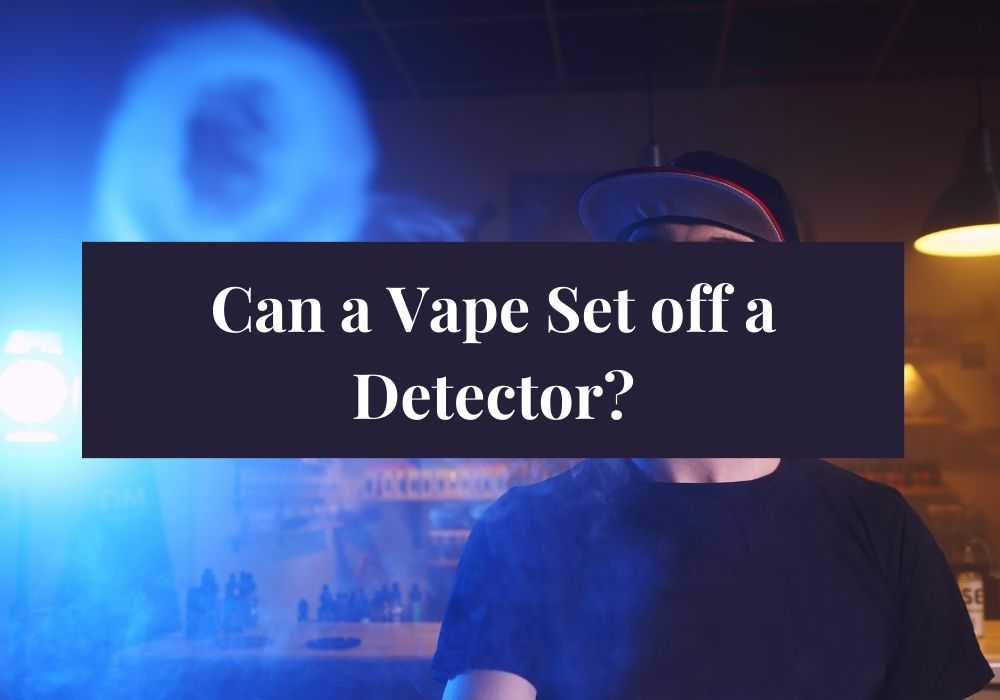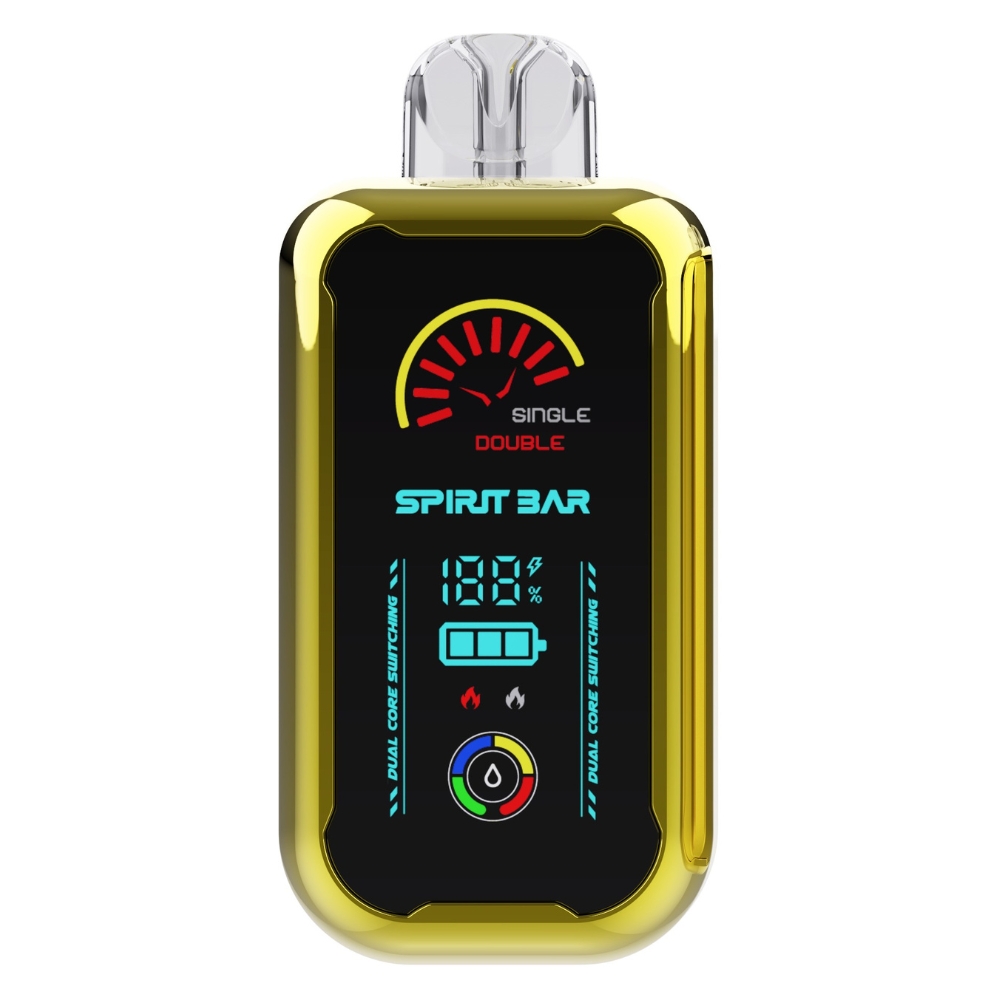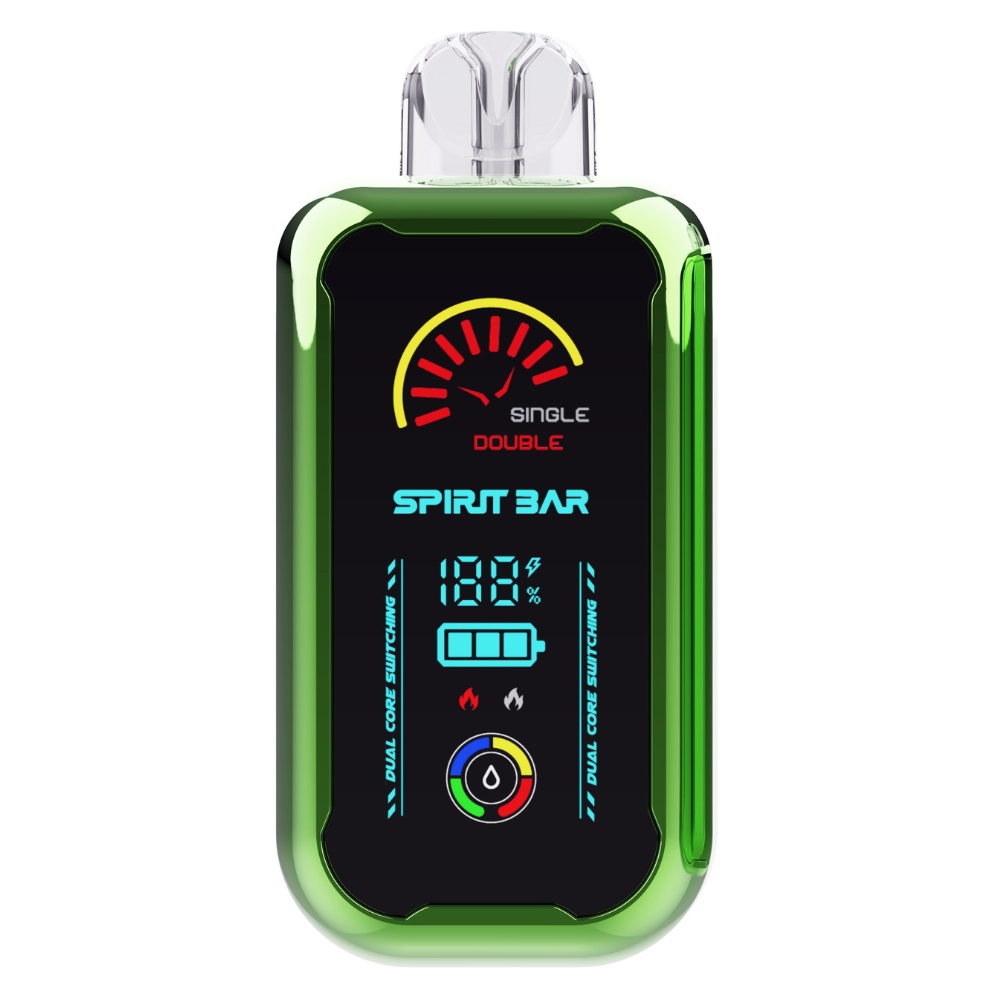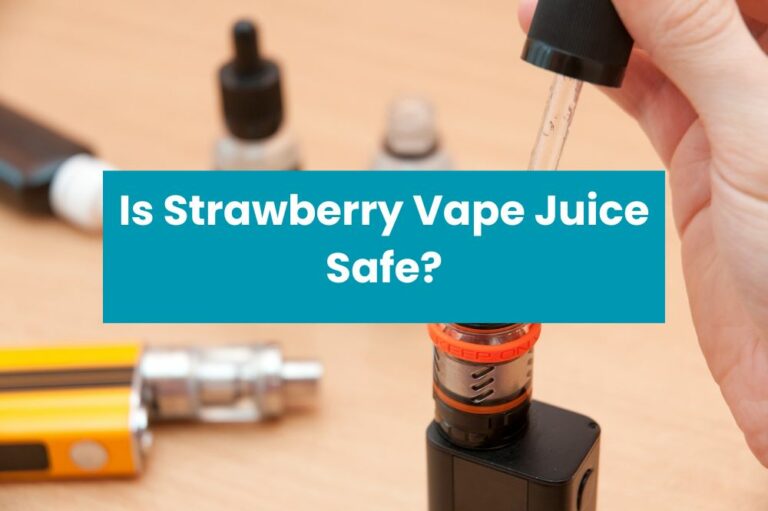Can a Vape Set off a Detector?

Are you a vaper who is concerned about setting off smoke detectors with your device? It’s a common worry among those who use e-cigarettes, and for good reason. While vaping doesn’t produce smoke like traditional cigarettes, it can still trigger some types of smoke detectors. So, can a vape set off a detector? The answer is yes, but it depends on several factors.
Firstly, the type of smoke detector you have can make a big difference. Some detectors are designed to detect particles in the air, while others are more sensitive to heat or light. Ionization and optical smoke detectors are more likely to be triggered by vaping, while heat detectors are less likely to be affected. Additionally, the proximity of your vape to the detector can also play a role. The closer you are to the detector, the more likely it is to pick up on the particles in your vapor.
There are also steps you can take to reduce the risk of setting off a smoke detector while vaping. For example, choosing a device that produces less vapor can help, as can taking shorter puffs and exhaling more gently. Some vapers also recommend exhaling through clothing to help disperse the vapor. Ultimately, the best way to avoid setting off a smoke detector is to be mindful of your surroundings and take precautions when necessary.
Understanding Vape Detectors
If you’re wondering whether a vape can set off a detector, it’s important to understand how vape detectors work. Vape detectors are designed to detect the presence of vaporized e-liquids in the air. They are commonly used in public places like schools and office buildings to prevent people from vaping indoors.
Vape detectors work by using sensors to detect the presence of vapor particles in the air. When the sensors detect a high concentration of vapor particles, the detector will trigger an alarm. This alarm is designed to alert authorities to the presence of vaping in a non-smoking area.
It’s important to note that vape detectors are highly sensitive and can detect even small amounts of vapor in the air. This means that even if you think you’re being discreet, there’s a chance that a vape detector could still pick up on your vaping.
To avoid triggering a vape detector, it’s best to avoid vaping in non-smoking areas altogether. If you must vape in a public place, try to do so in an area where smoking is allowed. Additionally, you can take steps to reduce the amount of vapor that you exhale, such as exhaling into your clothes or using a vape with lower vapor production.
Overall, it’s important to be mindful of your vaping habits and to respect the rules and regulations of non-smoking areas. By understanding how vape detectors work and taking steps to avoid triggering them, you can help ensure a safe and comfortable environment for everyone.
Types of Detectors
There are several types of smoke detectors, each with its own method of detecting smoke or vapor. The most common types of detectors are:
- Ionization Detectors: These detectors use a small amount of radioactive material to detect the presence of smoke. When smoke enters the detector, it disrupts the flow of electrical current, triggering the alarm.
- Photoelectric Detectors: These detectors use a beam of light to detect smoke. When smoke enters the detector, it scatters the light beam, triggering the alarm.
- Multi-Sensor Detectors: These detectors use a combination of ionization and photoelectric technologies to detect smoke. They are more sensitive to a wider range of fires than single-sensor detectors.
- Heat Detectors: These detectors are designed to detect a rapid rise in temperature, such as that caused by a fire. They are not sensitive to smoke or vapor.
It is important to note that vaping can set off smoke detectors that use ionization, photoelectric, or multi-sensor technology. However, heat detectors are unlikely to be triggered by vaping.
If you are a vaper, it is important to be aware of the type of smoke detector in your home or workplace. If you are unsure, you can check the manufacturer’s instructions or contact a professional to help you determine the type of detector you have. By understanding the type of detector you have, you can take steps to avoid triggering the alarm while enjoying your vape.
How Vapes Trigger Detectors
If you’re wondering how vapes trigger detectors, the answer lies in the vapor produced by e-cigarettes. Vape detectors are designed to detect the presence of vapor or smoke, and some may be more sensitive than others.
When you exhale vapor from your e-cigarette, it can spread throughout the room and potentially trigger a detector. This is especially true if you’re using a sub-ohm device with high-VG e-liquids like shortfills, which produce a lot of vapor.
It’s important to note that not all detectors are created equal. Some may be more sensitive to vapor than others, and some may be specifically designed to detect e-cigarette vapor. For example, some vape detectors use sensors that are specifically calibrated to detect the chemicals found in e-cigarette vapor.
Another factor that can impact whether or not your vape will trigger a detector is the size of the room you’re in. In a small room with poor ventilation, the vapor produced by your e-cigarette is more likely to linger and potentially trigger a detector.
To avoid setting off a detector, it’s best to vape in a well-ventilated area. If you’re in a public place, be sure to check if vaping is allowed and follow any rules or regulations in place.
Overall, while it is possible for vapes to trigger detectors, the likelihood of this happening depends on a variety of factors. By vaping responsibly and being mindful of your surroundings, you can minimize the risk of setting off a detector.
Fire Alarms and Vapes
If you’re a vaper, you may wonder if your vape can set off a fire alarm. The short answer is yes, it can. However, the likelihood of this happening depends on several factors, including the type of smoke detector, the intensity of the vapor, and the proximity of the vape to the smoke detector.
Smoke detectors work by sensing particles in the air. Some types of smoke detectors are more sensitive than others and can be triggered by vapor from a vape. According to Vape Green, vaping is likely to set off ionisation, optical, and multi-sensor alarms, but is unlikely to set off a heat detector.
The intensity of the vapor also plays a role in whether or not a smoke detector will be set off. If you’re exhaling large clouds of vapor, you’re more likely to set off a smoke detector than if you’re exhaling smaller amounts of vapor.
The proximity of the vape to the smoke detector is also important. If you’re vaping right underneath a smoke detector, you’re more likely to set it off than if you’re vaping in a different part of the room.
In general, it’s best to avoid vaping near smoke detectors to prevent them from going off. If you’re in a public place, such as an office building or hotel room, be sure to follow any rules or regulations regarding vaping to avoid setting off smoke detectors and causing a disruption.
Smoke Detectors and Vapes
If you’re a vaper, you may be wondering if your vape can set off a smoke detector. The short answer is yes, it can. However, the likelihood of this happening depends on several factors, including the type of smoke detector and the intensity of the vapor.
Smoke detectors work by sensing either smoke particles or changes in temperature. There are two main types of smoke detectors: ionization and photoelectric. Ionization detectors are more sensitive to small particles, like those produced by burning flames. Photoelectric detectors, on the other hand, are more sensitive to larger particles, like those produced by smoldering fires.
Vaping can potentially set off both types of smoke detectors, but photoelectric detectors are generally more likely to be triggered by vapor. This is because vapor particles are larger than smoke particles and are more likely to be detected by a photoelectric sensor.
The intensity of the vapor also plays a role in whether or not a smoke detector will be triggered. If you’re blowing out huge clouds of vapor, you’re more likely to set off a smoke detector than if you’re exhaling a small amount of vapor.
It’s important to note that while vaping can set off a smoke detector, it’s not the same as smoking. Vaping doesn’t produce smoke, so it’s not a fire hazard in the same way that smoking is. However, setting off a smoke detector can be a nuisance, especially if you’re in a public place or a shared living space.
To minimize the risk of setting off a smoke detector, it’s best to vape in a well-ventilated area and away from smoke detectors. If you’re in a public place, be considerate of those around you and avoid blowing huge clouds of vapor. By being mindful of your surroundings and the intensity of your vapor, you can enjoy vaping without causing a disruption.
The Science Behind Vape Detectors
Vape detectors work by detecting the vapor produced by e-cigarettes and other types of electronic smoking devices. They are designed to detect the presence of vapor in the air and alert the appropriate authorities if necessary.
Vape detectors can be triggered by the vapor produced by e-cigarettes and may also be sensitive to other types of vapor or smoke. For example, some vape detectors may be sensitive to the vapor produced by other types of electronic smoking devices, such as vaporizers or hookahs.
The sensitivity of vape detectors can vary depending on the type of detector and the environment in which it is installed. Some detectors may be more sensitive than others, and some may be more prone to false alarms.
It is important to note that not all vape detectors are created equal. Some detectors may be more effective than others at detecting vapor, while others may be more prone to false alarms. It is important to choose a vape detector that is appropriate for your particular needs and environment.
Overall, the science behind vape detectors is relatively simple. These devices are designed to detect the presence of vapor in the air and alert the appropriate authorities if necessary. While the technology behind vape detectors may be complex, the basic principles are straightforward and easy to understand.
Factors Influencing Vape Detection
When it comes to detecting vapes, several factors can influence the accuracy of the detection. Here are some of the factors that can influence vape detection:
Type of Vape
The type of vape you are using can influence whether it will set off a detector or not. Vapes that produce a lot of vapor are more likely to set off a detector than those that produce less vapor. Additionally, vapes that produce vapor with a strong odor are more likely to be detected.
Type of Detector
The type of detector being used can also influence whether a vape will be detected or not. Some detectors are designed specifically to detect vapes, while others are not. Detectors that are sensitive to vapor or smoke are more likely to detect vapes.
Sensitivity Settings
The sensitivity settings on the detector can also influence whether a vape will be detected or not. Some detectors have adjustable sensitivity settings that can be adjusted to detect different types of vapor or smoke. If the sensitivity setting is too low, it may not detect the vape.
Location of Vape
The location of the vape can also influence whether it will be detected or not. If the vape is close to the detector, it is more likely to be detected. If the vape is inside a bag or suitcase, it may be less likely to be detected.
Type of Cartridge
If you are traveling with a vape cartridge, the type of cartridge you are using can also influence whether it will be detected or not. Cartridges that contain metal components are more likely to be detected than those made of plastic or ceramic materials. It is best to check if your cartridge contains any metal components and pack it accordingly.
Overall, there are several factors that can influence whether a vape will be detected or not. If you are traveling with a vape, it is best to check the sensitivity settings on the detector, the type of vape you are using, and the location of the vape to avoid any issues.
Preventing False Alarms
If you’re concerned about your vape setting off a smoke alarm, there are some steps you can take to prevent false alarms:
- Choose a device that produces less vapor, such as pod systems or those with adjustable airflow. This will reduce the amount of vapor that is released into the air, which can help prevent false alarms.
- When exhaling, direct the vapor away from any smoke alarms. Blow the vapor towards a window or area with good ventilation. This will help to disperse the vapor and reduce the chance of it triggering the alarm.
- Take shorter and controlled drags to minimize the amount of vapor produced. This will help to reduce the amount of vapor that is released into the air, which can help prevent false alarms.
- Inspect your smoke detectors regularly to ensure that they are functioning properly. If your smoke detector is older, it may be more sensitive to vapor and more likely to trigger a false alarm. Consider replacing older detectors with newer models that are less likely to be triggered by vapor.
By taking these steps, you can help to reduce the chance of your vape setting off a smoke alarm and avoid any unnecessary interruptions or disruptions. Remember to always be mindful of your surroundings and take steps to minimize any potential risks.








